Over the past three years, Ms. Bui Thi Khanh Hoa, Director of Dak Nong Clean Agriculture Joint Stock Company, has applied innovative techniques to caring for vegetables and fruits grown in a 1,300m² greenhouse.
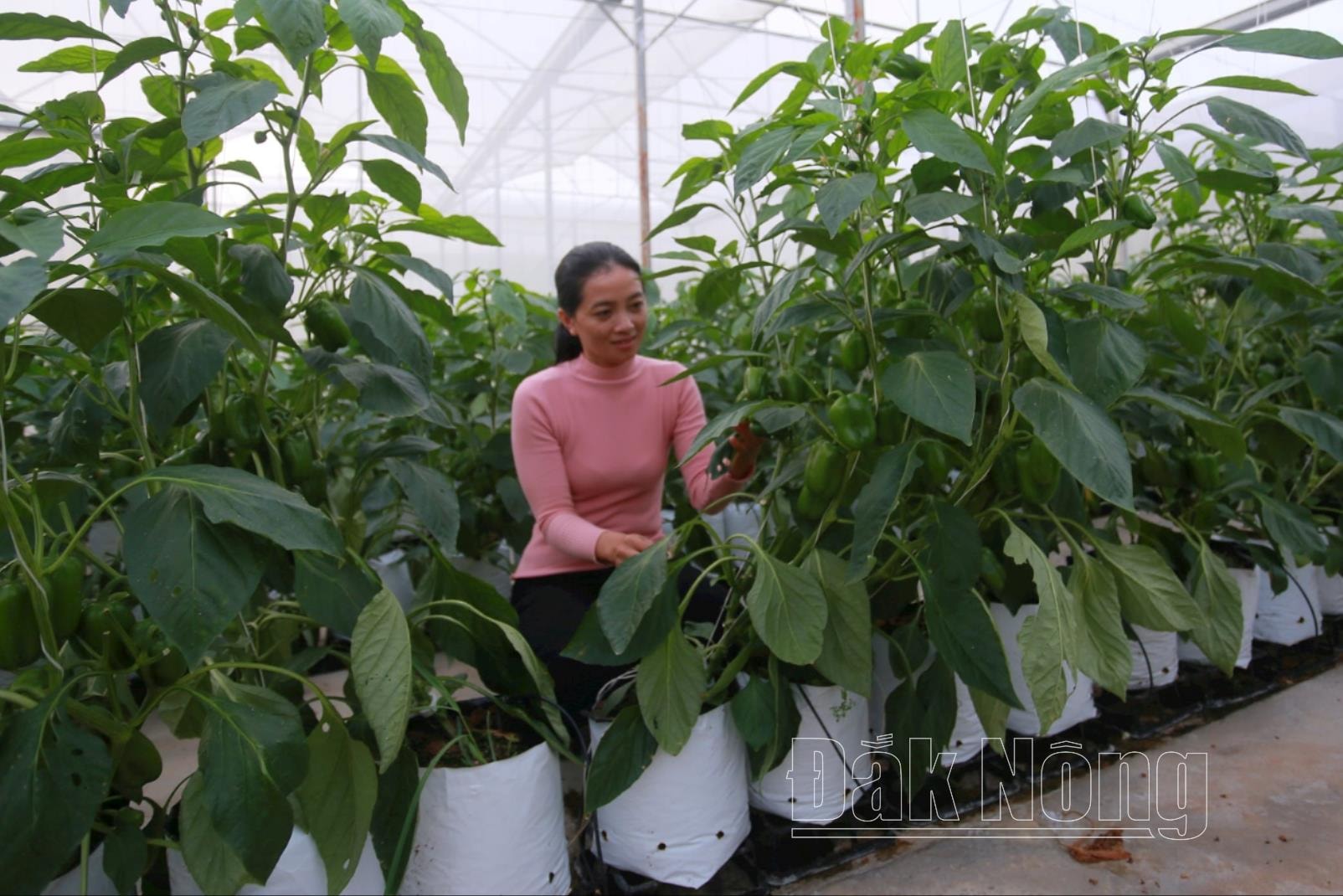
Currently, she is cultivating 1.5 hectares of mulberry trees with superior leaves to raise silkworms. According to Ms. Hoa, growing mulberry trees for silkworm farming offers a double benefit. She uses organic farming methods for the entire mulberry plantation, resulting in high yields and good quality cocoons, producing 3-4 boxes of cocoons each month.
Each box of silkworm cocoons weighs between 18 and 25 kg, and she sells them for about 20 million VND. Calculated monthly, Ms. Hoa earns approximately 70-80 million VND from selling silkworm cocoons.
What's remarkable is that Ms. Hoa uses all the silkworm droppings to make organic fertilizer for growing vegetables and fruits in her 1,300m² greenhouse. Ms. Hoa said that one box of silkworms yields 300kg of fertilizer, and she harvests over 100kg of fertilizer per month.
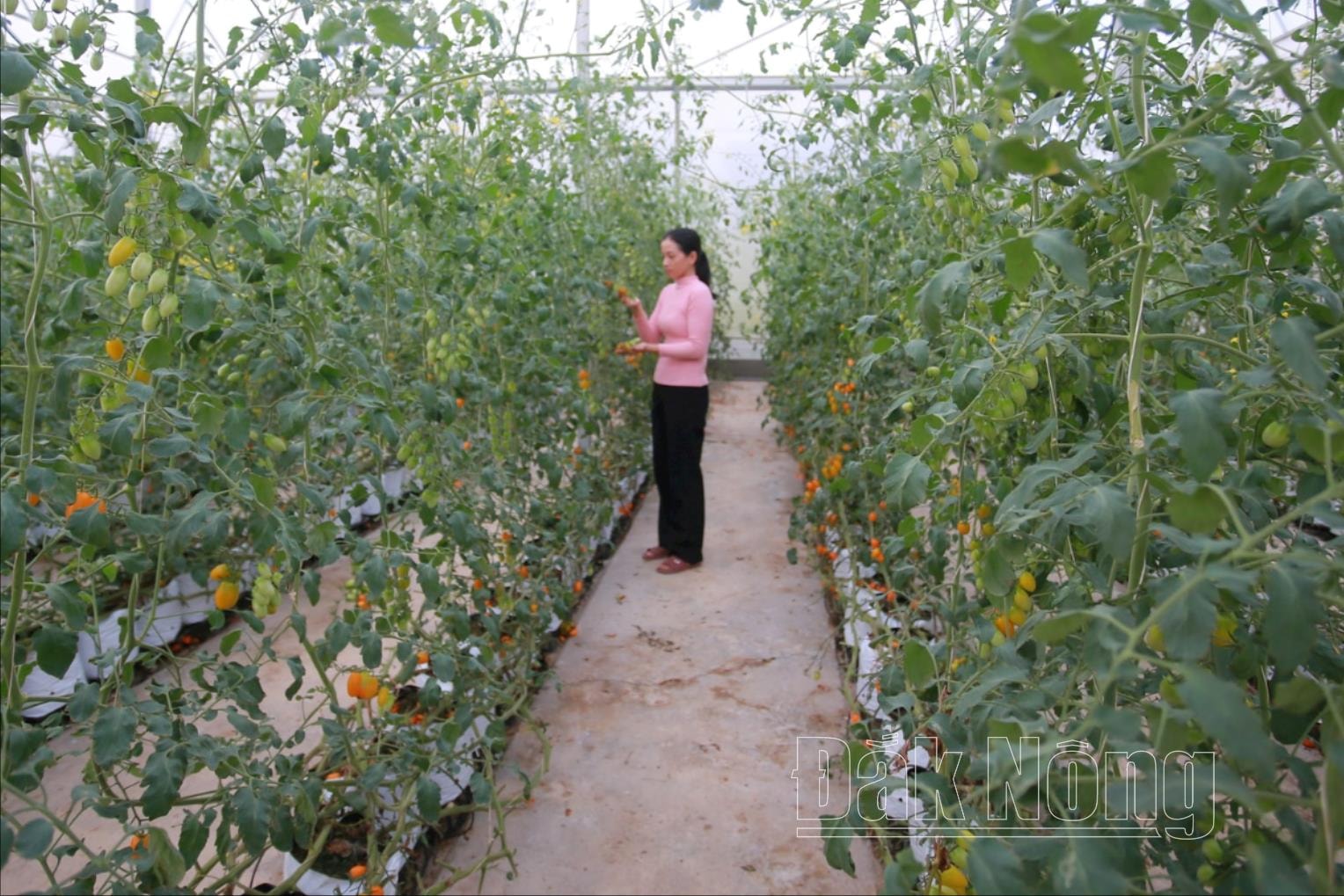
Ms. Hoa shared: “Silkworm droppings can be processed by composting for about 45 days. After processing, all the silkworm droppings are mixed with 50% coconut fiber and used as fertilizer for plants. This type of organic fertilizer is very good for plants and ensures product quality and safety.”
In her 1,300m² greenhouse, Ms. Hoa grows various crops including tomatoes, peppers, strawberries, baby watermelons, cantaloupes, and other vegetables. All are organically grown, ensuring food safety.
“I understand that organic farming techniques are very suitable. This is a kind of ‘pure fertilizer.’ If mulberry leaves contain pesticides or toxic chemicals, silkworms will die if they eat them. Therefore, mulberry leaves must be an organic input for silkworm farming, and silkworm excrement is the pure output. That’s why I chose to invest in mulberry cultivation and silkworm farming to produce organic agricultural products for my farm,” Ms. Hoa shared.
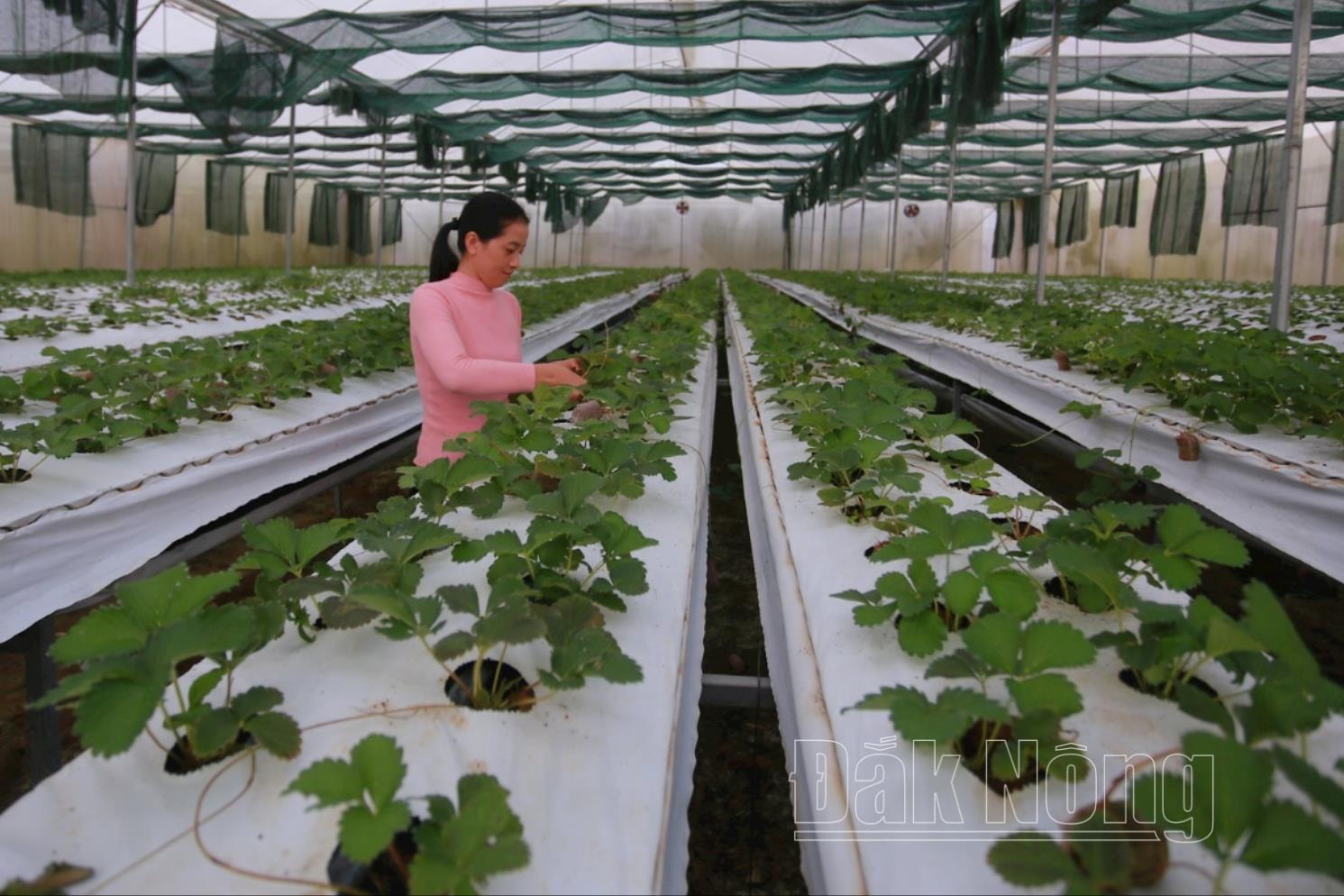
Along with silkworm manure and coconut fiber, Ms. Hoa invested in a drip irrigation system that delivers water to each plant. The lines are used to transport additional nutrient solutions made from soybean protein, fish protein, chicken eggs, fermented yogurt, or products infused with garlic, lemongrass, and chili peppers to control pests and diseases in the plants.
The agricultural products grown in greenhouses on Ms. Hoa's farm achieve high yields and quality, and have relatively stable sales. Ms. Hoa said: "The vegetables sold by the company are priced about 20% higher than the market price. The product sales are quite stable."
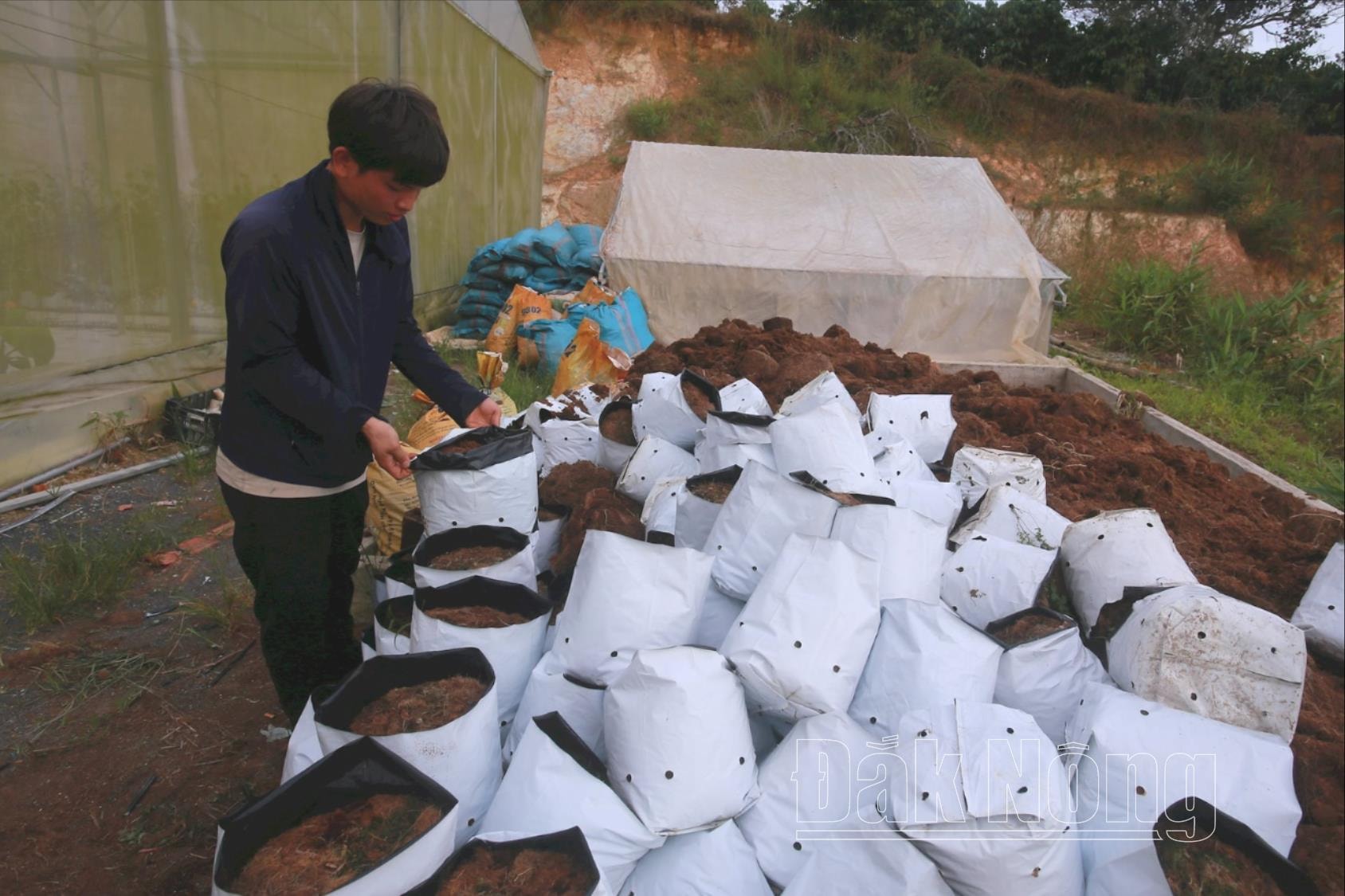
Strawberries grown in a 1,000m² greenhouse yield an average of about 4 tons of fruit per harvest, selling for 300,000 - 600,000 VND/kg, depending on whether the fruit is small or large.
Ms. Hoa also grows cantaloupe in a 1,000m² greenhouse, yielding about 6 tons per harvest, selling for 70,000 VND/kg. Since October 2024, Ms. Hoa has been exporting 500kg of herbs to Singapore each month, at a price of 70,000 VND/kg for all varieties.
Ms. Hoa said that using silkworm manure increases productivity and product value. Growing vegetables and fruits in greenhouses allows her to control the amount of fertilizer, water, and nutrients for the plants.
Ms. Hoa's current sales method is also very unique. "Currently, we sell our products directly by shipping nationwide and absolutely do not go through supermarkets, distributors, or stores because we are afraid of having our labels tampered with. We produce and supply directly to consumers to reduce costs for buyers. All products have traceability labels," Ms. Hoa explained.
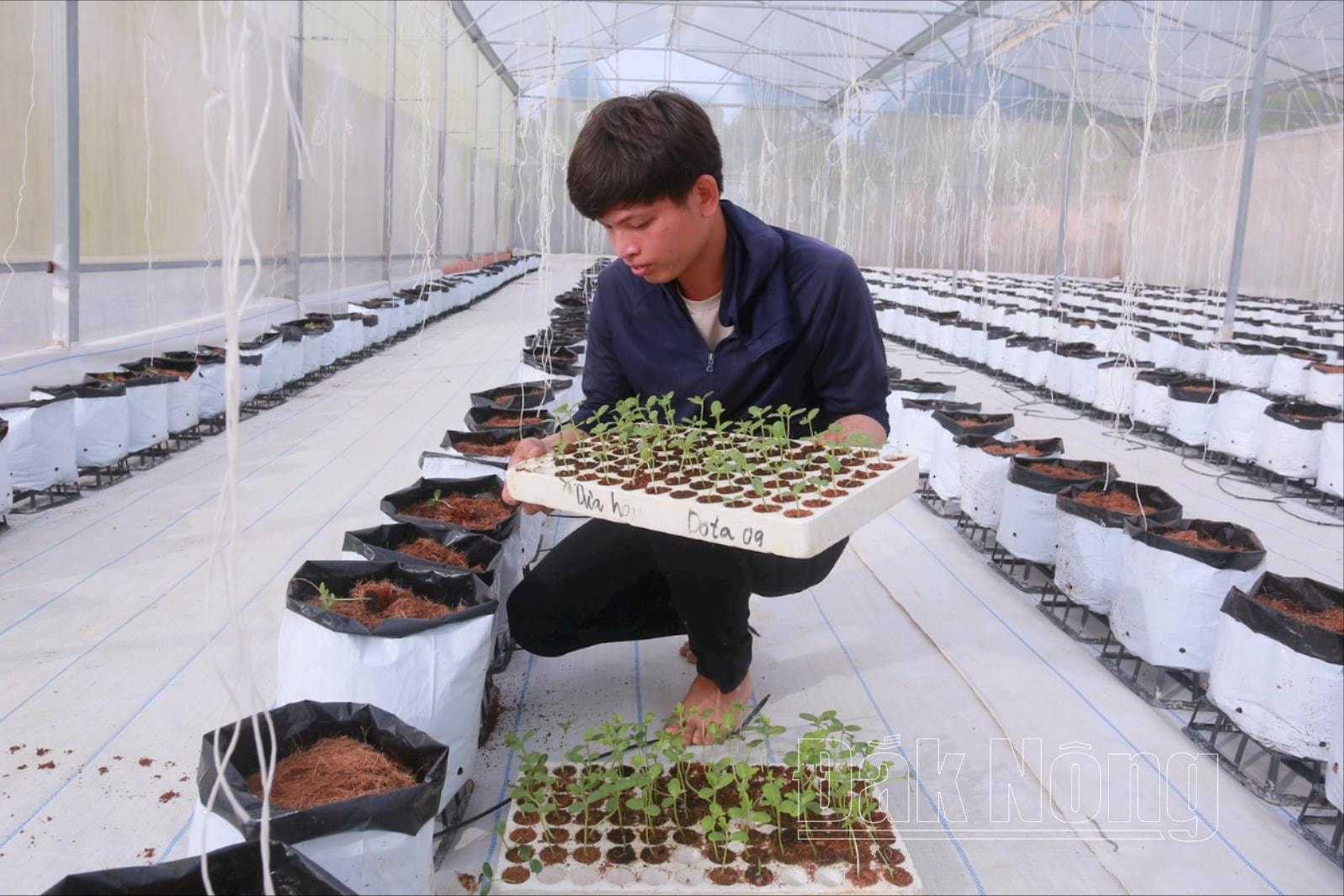
According to Ms. Hoa, consumer demand for clean products is increasing, and the company is currently unable to meet the demand. At the end of November, the company opened a supermarket specializing in clean agricultural products in District 2, Ho Chi Minh City.
Ms. Hoa's closed-loop production method is contributing to Dak Nong province's orientation towards exploiting its potential and strengths to develop clean and green agriculture, thereby promoting sustainable economic development.
Source: https://baodaknong.vn/rau-qua-sach-nho-phan-tinh-khiet-237371.html




![[Photo] General Secretary To Lam presides over a meeting with the Editorial Teams to summarize 100 years of the Party's leadership of the Vietnamese revolution and 40 years of implementing the National Construction Program.](https://vphoto.vietnam.vn/thumb/1200x675/vietnam/resource/IMAGE/2026/03/04/1772601288977_a1-bnd-8134-7576-jpg.webp)

















































































































Comment (0)